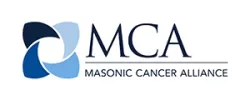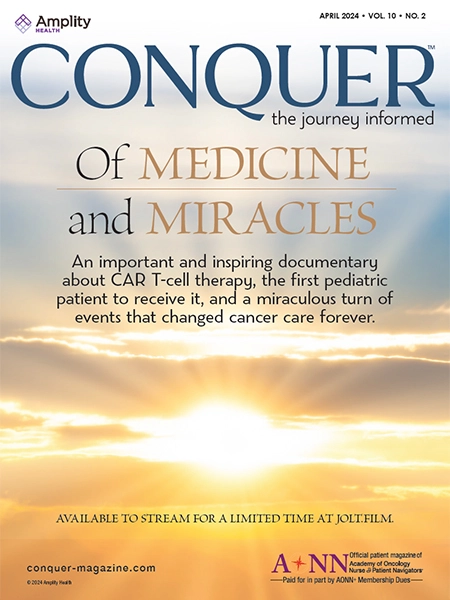Call for Abstracts
Submission Instructions & Acceptance Notifications
2024 Abstract Important Dates
- Abstract submission opens: March 4th
- Abstract submission closes: June 4th
- Abstract notifications to corresponding contact: July 22nd
- Resubmissions due if revisions required: August 16th
- Notifications on revisions to corresponding contact: August 28th
- Abstract winner/honorable corresponding contact notified: October 7th
- Poster submission due in e-format: November 6th
2024 Late-Breaking Abstract Important Dates
- Late-breaking submission opens: July 8th
- Abstract submission closes: August 28th
- Corresponding contact notified of decision: September 25th
Abstract Guidelines
- All abstracts should be submitted into the required fields.
- Word count: 500. This does not include the title, author listing, or references.
- All abstracts must include full author names (including any applicable degrees) and author primary affiliations.
- Primary contact information will be captured on the following submission page.
- All accepted abstracts must have at least 1 representative as a registered attendee of the conference.
- Click here for an example of an abstract submission.
Required and Prohibited Content
- Abstracts MUST INCLUDE: Title, Authors, Objectives, Methods, Results, and Conclusions.
- Generic names should be used for drugs and devices, not trade names.
- Abbreviations may be used in the text of the abstracts if they are defined. Spell out the term at the first full mention and follow with the abbreviation in parentheses.
- Figures/tables will not be permitted.
Disclosure
- This information will not be part of the word count.
- Individual author disclosures are not required.
Encore/Previously Presented Information
Permission to Reproduce
Helpful Resources
- AONN+ Webinar: Writing an Abstract.
- How to Write a Research Abstract.
- Understanding the Art Behind an Abstract.
- Click here for an example of an abstract submission.
- Click here for an example of an abstract that needs work, and the comments from the reviewer to improve the abstract and make it acceptable for inclusion.
- Click here for Abstract Criteria for Acceptance.
Abstract/Poster Categories
Navigators must have core knowledge of early signs of cancer, screening guidelines, and community and state resources available to support the patient’s population.
Potential topics include:
- Cancer screening
- Cancer screening follow-up to diagnostic workup
- Completion of diagnostic workup
- Disparate populations at screening events
- Community needs assessment
- Genetics
- Risk assessment
- Population health
The role of the navigator along the continuum of care is bidimensional in nature, with a patient-centered (empowerment of education and knowledge) and health system (multidisciplinary) orientation to deliver timely, seamless care.
Potential topics include:
- Barriers to care
- Interventions
- Clinical trial education and referrals
- Patient education
- Diagnosis to initial treatment and diagnosis to first oncology consult
- Tumor boards
- Multidisciplinary approach to care
- Models of navigation
Patient advocacy is protecting the individual’s rights and autonomy, speaking up for the individual and community needs, educating providers in the healthcare system on an individual's preference of care and needs, and ensuring the individual’s needs and preferences are integrated into the care delivery.
Potential topics include:
- Patient problem-solving and patient goals
- Caregiver support
- Identifying learning styles
- Engagement in decision-making tools
- Patient support groups
Distress extends along a continuum, ranging from common normal feelings of vulnerability, sadness, and fear to problems that can be disabling, such as depression, anxiety, panic, social isolation, and existential and spiritual crisis.
Potential topics include:
- Psychosocial distress screening
- Social support referrals
- Strategies for coping, disease, treatment, stress/anxiety
Navigation is integral to facilitating effective interprofessional collaboration and promoting patient satisfaction and care quality, as well as efficiently using healthcare resources to decrease cost across oncology patient populations.
Potential topics include:
- Navigation knowledge at time of orientation
- Oncology navigator core competencies review
- Tracking workloads
Navigators can use research and outcomes to develop and validate the programs and services provided.
Potential topics include:
- Patient experience and satisfaction with care
- Navigation program validation based on community assessment needs
- Original research on navigation programs
- How data are used for continuous improvement
- Patient transitions from point of entry
- Diagnostic workup to diagnosis
The identification of barriers, recognizing how barriers affect patient care, and providing interventions/resources to address barriers related to flow and processes of care are at the heart of operations management.
Potential topics include:
- Healthcare economics
- Organizational development
- Utilization resources
- Metrics:
- 30-, 60-, 90-day readmission rate
- Navigation operational budget
- Navigation caseload, referrals to revenue-generating services
- No-show rate
- Patient retention through navigation
- Emergency department utilization
- Emergency admissions per number of chemotherapy patients
Throughout the seasons of survival, it is imperative for healthcare providers to continually offer the components of survivorship care in the forms of prevention through health and wellness promotion, surveillance for recurrence and screening for new cancers, intervention for management of lasting physical and psychosocial effects, and coordination of care for the cancer survivor.
Potential topics include:
- Survivorship care plans
- Transition from treatment to survivorship
- Referrals to support services at the survivorship visit
- Palliative care referrals
- Hospice referrals
- Bereavement programs
Thank You to Our Corporate Sponsors and Alliance Partners!
-

Major Corporate Sponsor
-

Patron Corporate Sponsor
-

Patron Corporate Sponsor
-

Patron Corporate Sponsor
-

Industry Relations
Council Member -

Industry Relations
Council Member -

Industry Relations
Council Member -

National Alliance Partner
-

National Alliance Partner
-

National Alliance Partner
-

National Alliance Partner
Privacy Notice | Terms of Use
© 2009- DBA AONN+ Academy of Oncology Nurse & Patient Navigators® | PO Box 563, Cranbury, NJ 08512 |
AONN+ DBA AONN+ is a 501(c)(6) organization under federal tax guidelines. AONN+ Foundation for Learning, Inc. a 501(c)(3) organization under federal tax guidelines.
AONN+ Advantage, LLC, a wholly owned subsidiary of AONN+.


